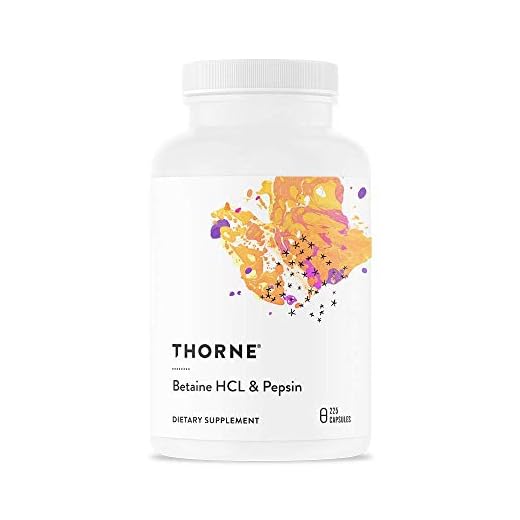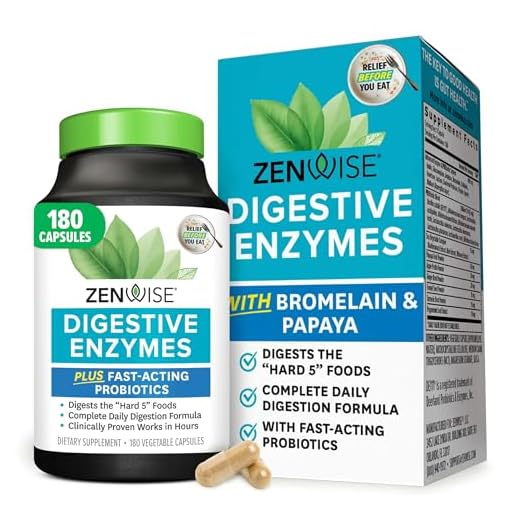

When it comes to maintaining a well-balanced diet, the focus often revolves around consuming adequate amounts of this indispensable nutrient necessary for our body’s sustenance. Protein, a crucial macronutrient that nourishes and repairs our cells, muscles, and tissues, stands paramount in our quest for optimal health and well-being.
While the importance of protein intake is undeniable, attention must be given to the process through which our body effectively breaks down and assimilates this fundamental component. The ability to digest protein with ease is not only essential for its absorption but also plays a pivotal role in maximizing its nutritional benefits.
Discovering the art of effortlessly assimilating protein brings us closer to uncovering the key strategies and techniques that enhance our body’s proficiency in extracting the utmost nutrients from this vital macronutrient. By delving into the science behind protein digestion, exploring practical dietary habits, and incorporating various digestive aids, we pave the way towards a smoother journey into optimizing our protein assimilation methods.
Key Factors to Consider for Efficient Protein Digestion
In order to optimize the breakdown and absorption of essential amino acids from dietary protein, several crucial factors should be taken into consideration. By understanding these key elements, individuals can enhance the efficiency of protein digestion and ensure proper nutrient utilization for overall health and wellbeing.
- Enzymatic Activity: An important factor in protein digestion is the presence and activity of digestive enzymes, such as proteases, which help to break down complex proteins into smaller peptides and individual amino acids for absorption.
- Hydrochloric Acid (HCl) Production: Adequate production of HCl in the stomach is essential for initiating protein digestion. HCl helps to denature proteins, making them more accessible for enzymatic breakdown and further digestion in the small intestine.
- Gastric Emptying Rate: The rate at which food moves from the stomach to the small intestine, known as gastric emptying, can impact protein digestion. Slower gastric emptying may provide more time for adequate breakdown of proteins.
- Gut Microbiota: The composition and diversity of gut bacteria play a crucial role in protein digestion. A balanced and healthy gut microbiota can help in the fermentation and breakdown of dietary proteins, aiding in their digestion and absorption.
- Food Combination: Certain foods, when consumed together, can enhance protein digestion. For example, consuming protein-rich foods with foods high in vitamin C can increase the absorption of iron, an essential mineral involved in numerous enzymatic processes.
- Dietary Fiber Intake: Adequate consumption of dietary fiber promotes healthy digestion overall, including protein digestion. Fiber can add bulk to the diet, stimulate intestinal motility, and provide a favorable gut environment for efficient protein breakdown and nutrient absorption.
By being mindful of these key factors and making appropriate dietary choices, individuals can support effective protein digestion and optimize the utilization of dietary protein for various bodily functions, including muscle repair, hormone synthesis, and immune system support.
The Role of Enzymes in Efficient Protein Metabolism
Enzymes play a crucial role in facilitating the breakdown and absorption of dietary protein, promoting efficient protein metabolism. These specialized proteins act as biological catalysts, driving the chemical reactions involved in protein digestion without being consumed themselves. By performing specific functions, enzymes contribute to the process of protein metabolism by facilitating its breakdown and subsequent utilization by the body.
1. Proteases: Proteases are enzymes responsible for breaking down proteins into smaller peptides and amino acids. They work by cleaving the peptide bonds that hold amino acids together, allowing for easier absorption and utilization by the body. Proteases are categorized into different classes based on their specific mode of action, such as endopeptidases and exopeptidases.
2. Endopeptidases: These enzymes cleave the internal peptide bonds within proteins, producing smaller peptide fragments. Examples of endopeptidases include pepsin, trypsin, and chymotrypsin, which are produced in the stomach and pancreas. They play a vital role in breaking down complex proteins into simpler forms, enabling further digestion and absorption.
3. Exopeptidases: Exopeptidases, on the other hand, are enzymes that cleave the terminal peptide bonds of protein molecules. Their action leads to the release of individual amino acids or dipeptides. Some prominent exopeptidases include aminopeptidases and carboxypeptidases, which are present in the intestinal lining and contribute to the final stages of protein digestion.
4. Transporter Proteins: While not enzymes themselves, transporter proteins also play a key role in protein metabolism. Once proteins are broken down into amino acids and smaller peptide fragments, transporter proteins assist in their absorption across the intestinal lining and into the bloodstream. These specialized proteins ensure that the digested protein components reach their intended destinations within the body for utilization in various biological processes.
5. Coenzymes: Coenzymes are small organic molecules that are essential for the proper functioning of many enzymes involved in protein digestion. They often act as cofactors, assisting enzymes in carrying out specific chemical reactions during protein metabolism. Examples of coenzymes include various vitamins, such as vitamin B6 and vitamin C, which are necessary for the optimal activity of specific proteases.
In conclusion, enzymes are indispensable in the process of protein digestion, providing the necessary catalysts for breaking down complex proteins into more accessible forms. Through the action of proteases, exopeptidases, transporter proteins, and coenzymes, dietary proteins are efficiently broken down into smaller peptides and amino acids, ready for absorption and utilization by the body. Understanding the role of enzymes in protein digestion can help individuals optimize their nutrient intake and support overall digestive health.
Tips for Enhancing Protein Breakdown to Maximize Nutrient Uptake
Optimizing the breakdown of protein is essential for efficient absorption of vital nutrients. By employing strategic techniques, you can enhance the digestion process, ensuring your body receives maximum benefits and unleashing the potential of this essential macronutrient.
1. Incorporate Digestive Enzymes
Enzymes play a vital role in the breakdown of proteins. Including a variety of foods that naturally contain digestive enzymes such as pineapples, papayas, or fermented foods like kimchi can aid in enhancing protein digestion. Additionally, consider incorporating enzyme supplements that contain protease to further support the process.
2. Optimize Chewing
The process of chewing is often overlooked, but it plays a crucial role in protein digestion. Properly chewing food not only helps to break down larger protein molecules into smaller, more manageable pieces but also aids in the release of digestive enzymes in saliva to initiate the breakdown process.
3. Consume Probiotic Foods
A healthy gut flora is essential for effective digestion and nutrient absorption. Including probiotic-rich foods such as yogurt, kefir, sauerkraut, or kombucha can help maintain a healthy balance of gut bacteria, optimizing the digestion of proteins and other nutrients.
4. Practice Mindful Eating
Engaging in mindful eating practices, such as slowing down your mealtime and taking smaller bites, can promote better digestion. By allowing yourself time to focus on the act of eating, you activate the parasympathetic nervous system, signaling the body to produce the necessary enzymes for proper protein breakdown.
5. Pair with Fiber-Rich Foods
Incorporating fiber-rich foods in your meals can aid in protein digestion and improve nutrient absorption. Fiber helps regulate the digestive system, preventing constipation and promoting the movement of food through the intestines, allowing for optimal breakdown and absorption of protein.
By implementing these simple yet effective strategies, you can optimize protein digestion, ensuring that your body absorbs the essential nutrients it needs to support overall health and wellness.






